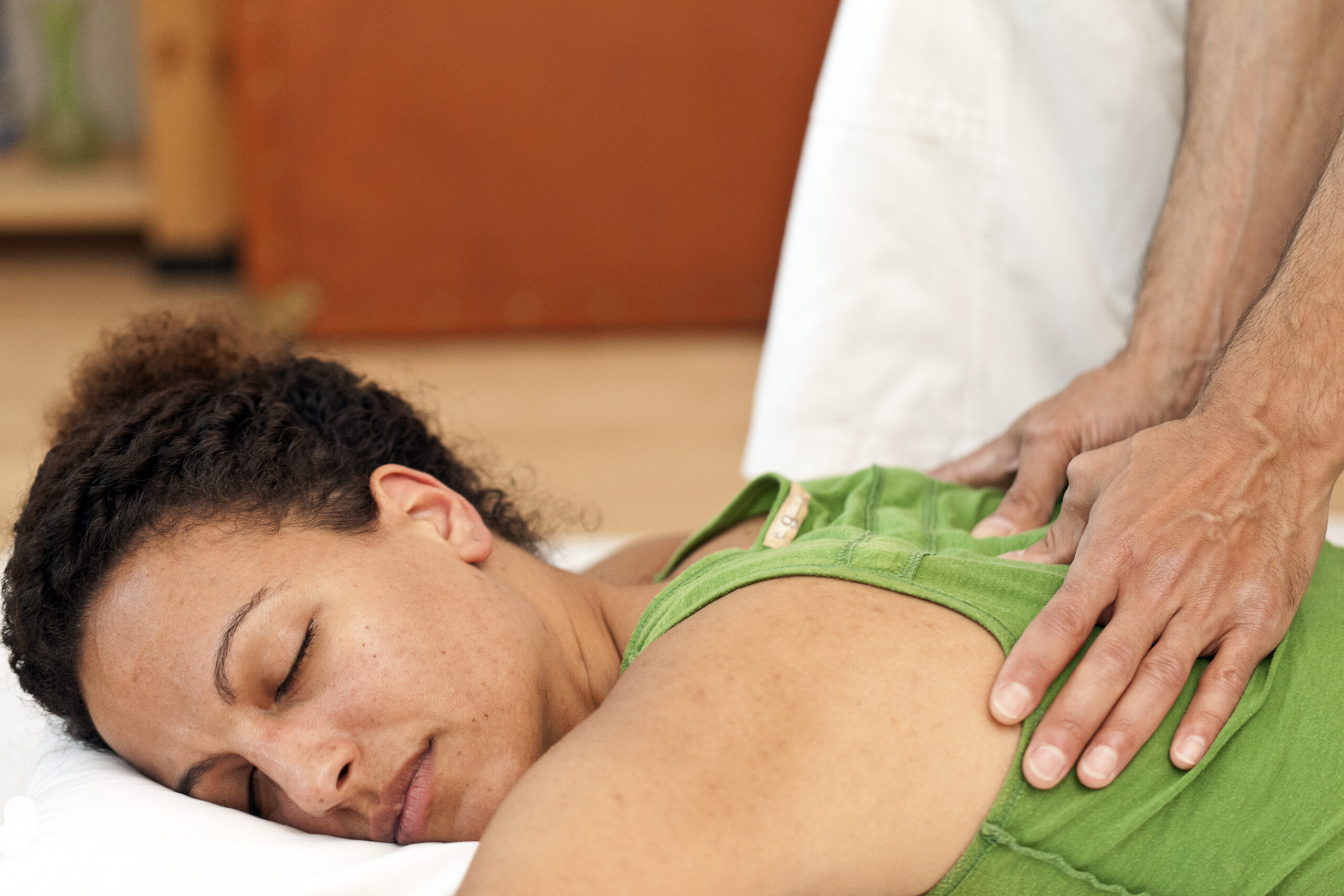What should I look for in a massage therapist?

In addition to the yoga and movement study I teach, I have been practicing shiatsu massage for the past 13 years, and have been on the receiving end of various massage treatments for over 20.
I recently came to thinking about the most and least effective massages I have had (and given) and want to share a few pointers that might help anyone considering or using manual therapy as a means of self-care, to ensure you’re getting the full benefit of your treatments. Read on for the details…
1) Is your therapist there to help you, or fix you?
As manual therapists, the former is within our scope of practice – the latter is not. This is one place where “if it sounds too good to be true…” is well worth paying attention to.
In my time as a shiatsu therapist, I have helped people with chronic and acute conditions like neck and shoulder pain, low back pain, and stress reduction, but not once have I ever fixed these issues, recognizing that pain and discomfort comes and goes in life for many reasons.
Also, be aware that any fantastical claims that massage can release toxins, cure diseases, correct skeletal imbalances, etc., are not supported by scientific evidence.
2) Is your massage therapist present and attentive?
Good massage isn’t just about pressure – a skilled therapist is listening to the feedback you, your body and your breathing are providing, from your intake at the start of your session to your feedback the end. If the therapist isn’t staying focused on you during your treatment, you’re going to feel it in their hands, as well as in the end result.
3) Are their treatments adaptive?
Your muscles, connective tissue and nervous system are in constant flux. The needs you had when you came in for last month’s massage may not be the ones you have for your next session. The best treatments are the ones that are adapted to your needs in the moment. If you’re receiving the same sequence and the same pressure each and every time you come in, you may not be getting the full benefit therapeutic massage has to offer.
4) How do you feel afterward?
Generally, after a massage session, you will feel relaxed – that’s typically the main goal. You might feel a bit fatigued or spaced-out – this is often a byproduct of reduced tension. Any soreness should be both mild and temporary. How long the effects of your massage last depends partly on what you do after your treatment and the skill of your therapist. In my experience, the benefits from a good massage can be felt anywhere from a couple of days to a couple of weeks post-treatment.
5) Is your therapist reducing or increasing your dependence on them?
I have always worked with the adage, “I know I’m doing my job well, when you start seeing me less often.” If your therapist uses a lot of nocebic (negative) language, seems to be constantly pointing out what’s wrong with you (known as “catastrophizing”) and pushes you to rebook at the end of each session, it might be time to seek out a new practitioner.
I hope that that these tips will help you in your search. If you have further questions, or would like to learn more about my services, feel free to reach out via my contact page.